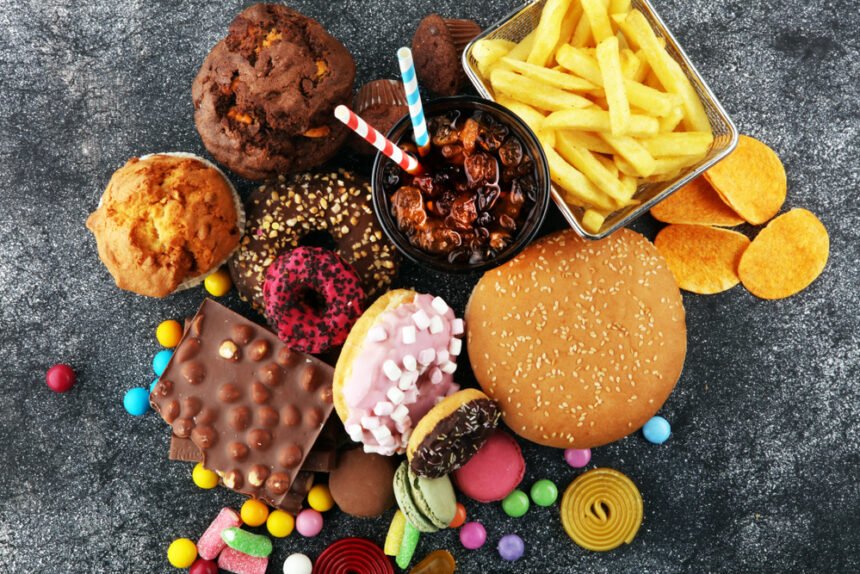When we talk about eating disorders, we often mention anorexia and bulimia. But did you know that binge eating disorder (BED) affects three times the number of people than both of these combined? BED is characterized by eating far more than actually feels good in one sitting and the loss of control over eating, followed by the feeling of guilt and shame. It is the most common among women, but men are not immune to it, and it is seen across all age groups. Of course, one time of overeating doesn’t make you a part of the statistics. The binge episodes need to happen at least once a week for a couple of months in a row. The common risk factors include mental health issues, family history, and dieting. Let’s see some of the overlooked causes of uncontrollable overeating and ways to fight them.
Food addiction
While a popular idea among some scientists, food addiction, is a rather controversial subject. Some researchers believe that certain foods high in salt, sugar, and additives trigger changes in the brain similar to those made by drugs. However, while overeating can temporarily boost the release of happy chemicals in the brain, it cannot be viewed as addictive because dieting is an important component of BED, and treatment for addiction is abstinence. So, while you may not have a food addiction, you can still eat to experience the mentioned changes in the brain and use food as a refuge from everyday stress. Since this is foremost a psychological problem, the best way to address it is by working with a counselor who can help you discover your emotional triggers that may be driving this behavior and help you start coping with binge eating.
Lack of sleep
According to a 2013 study, there is a strong link between sleep deprivation and food desire that can lead to obesity. Lack of sleep is even connected with cravings for specific unhealthy foods. Indeed, some studies have shown that a sleep-deprived brain is similar to the brain on marijuana, which is known for making the very act of eating more enjoyable. The Foundation also states that not getting enough sleep one night can cause you to eat 300 calories more the next day and twice as much fat compared to the days when you sleep eight hours. To solve this, you must tackle the problem at its very root. Create healthy sleeping habits by going to bed and getting up at the same time every day. Have a relaxing ritual before bedtime (reading, hot bath, etc.) and avoid blue light exposure. Finally, some vitamins may improve sleep quality and duration.
Skipping meals
Some people think that skipping meals is a good way to lose weight. However, this can only cause starvation, which eventually leads to eating more food than you need in one meal. People sometimes skip meals for other reasons as well, including a lack of time. The results are the same. Your brain senses the shortage of food and triggers procedures to prevent starvation. This causes you to lose control over what and how much you are eating. The most common meal people tend to miss is breakfast, but there is a reason why we call it the most important one. It gives you the energy to kickstart your day, so make sure you have a nutritious one (include whole grain, cereals, dairy, fruits, and other energy-boosters). It might help to stick to a specific eating schedule until you get used to eating at least three meals a day.
Being a sloppy chewer
How many times do you chew your food before swallowing? OK, most people don’t count that, but if you chew your bites just a couple of times, your brain is not able to catch up with your stomach, and you won’t be able to know when you are full. Nutritionists recommend chewing each bite of food approximately 30 times. In the beginning, this may take some exercise, and it might be annoying. But, when you think about it, not only will you prevent overeating, but you will also enjoy the textures and flavors of the food more intensely.
Not drinking enough water
Dehydration can be tricky: you may think that you are hungry, but what your body actually needs is a glass of water. This can cause you to eat more often than you should and consume larger amounts of food. Look for common signs of dehydration that follow hunger thirst, fatigue, and having concentrated urine. For women, it is recommended to drink 11.5 cups a day, while men should have 15.5 cups. However, you also need to factor in activities that could request more fluids, such as exercising or breastfeeding. While essential, water is not the only liquid you can drink. You can also have herbal tea, sugar-free fruit juice, or foods with high water content (cucumber, watermelon, and similar).
Final word
These were some of the not-so-talked-about reasons why people tend to overeat uncontrollably. The “more popular” you already know is stress, anxiety, and depression. If you can’t find yourself among them, maybe the ones in this article will help you figure out the root of your problems.

